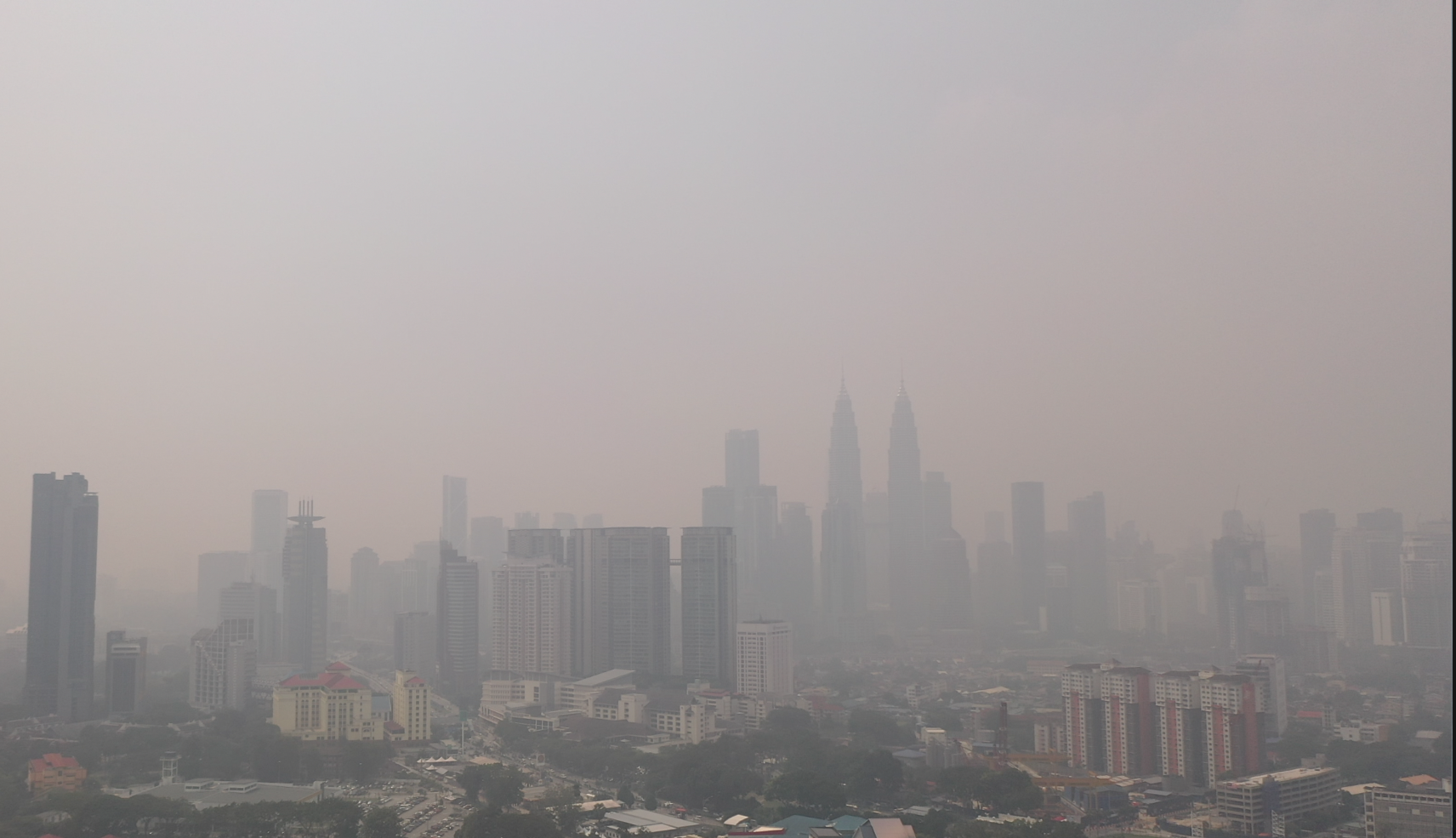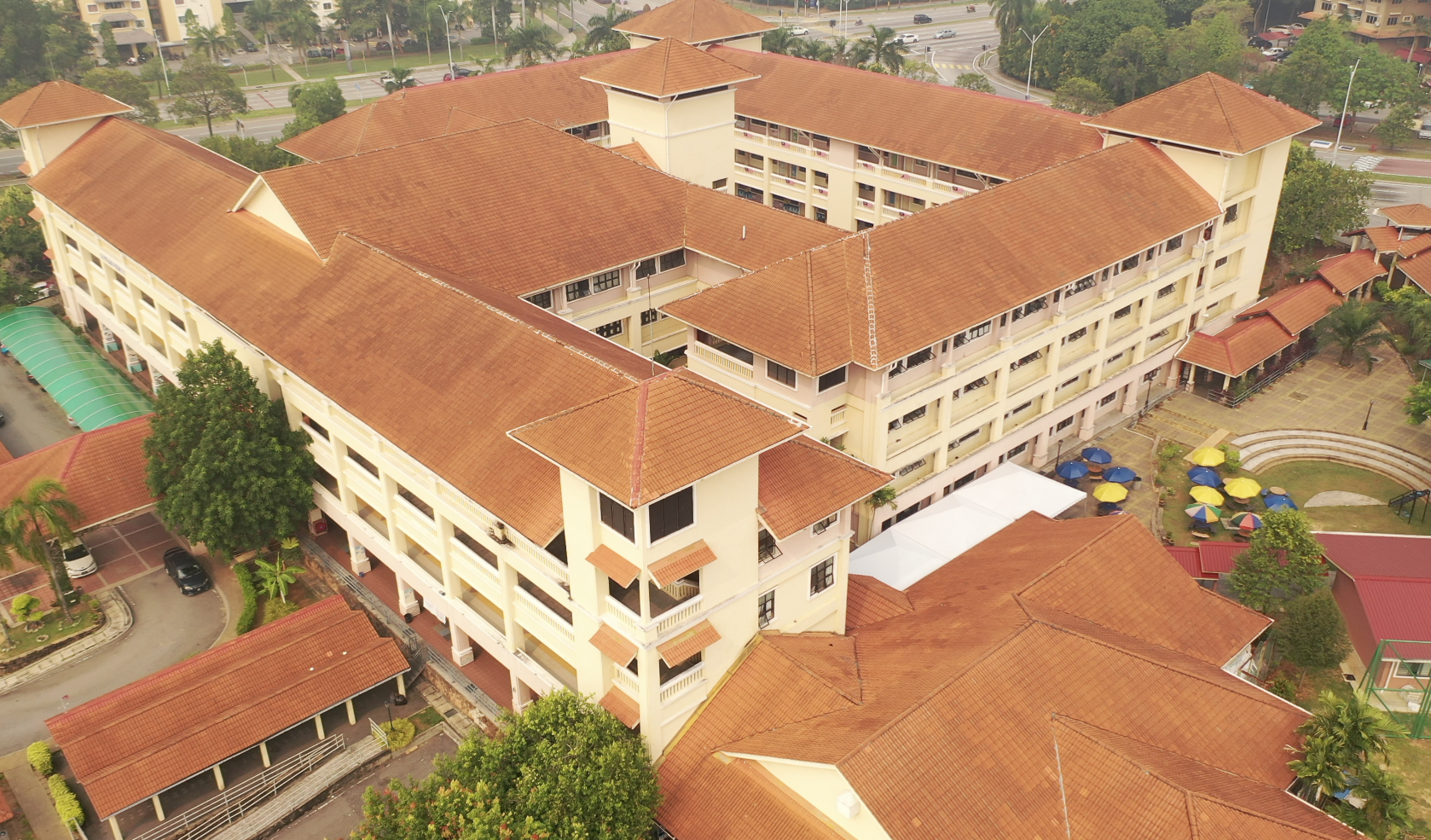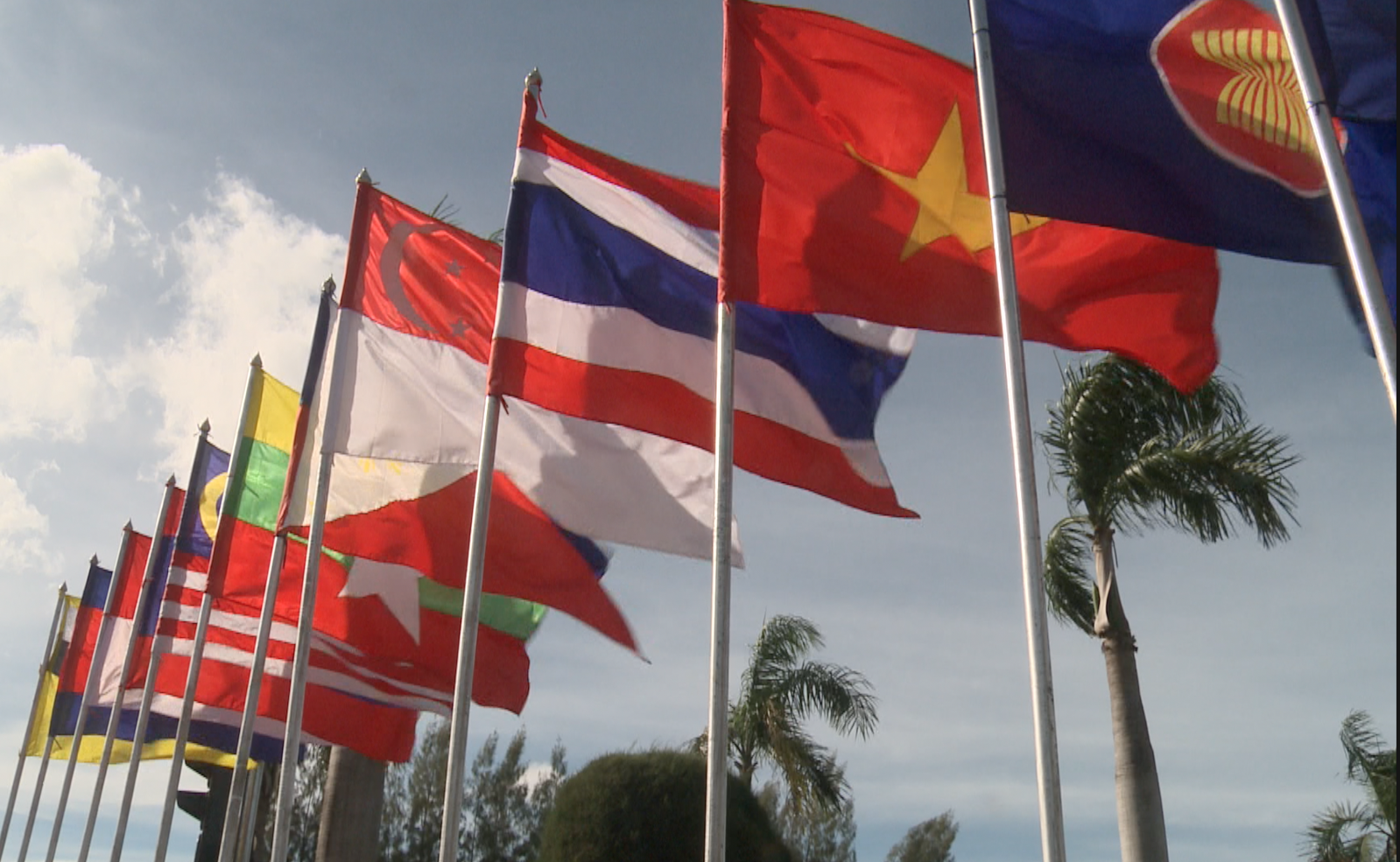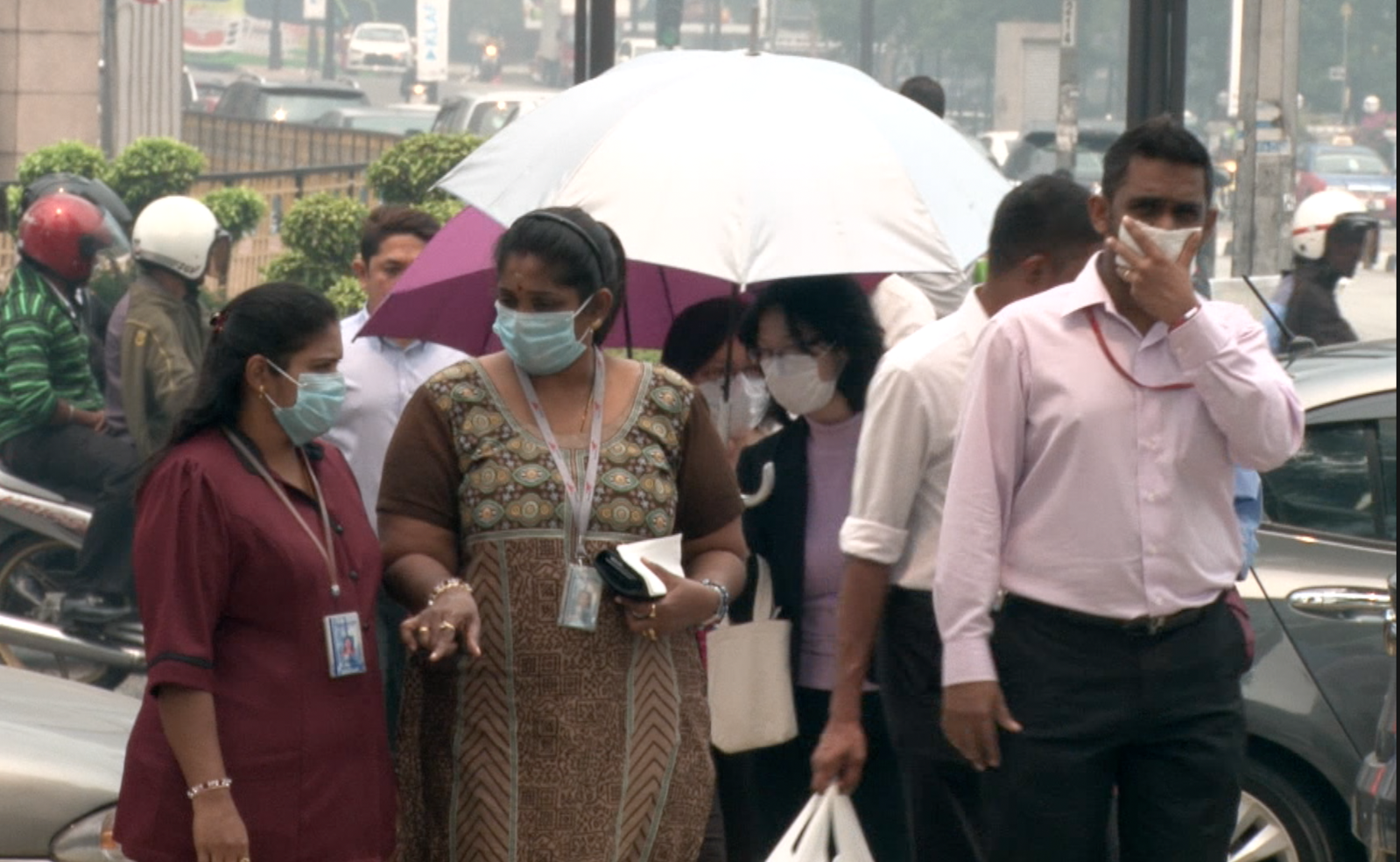
Kuala Lumpur's skyline this week. /CGTN Photo
Kuala Lumpur's skyline this week. /CGTN Photo
It was in 1997 that the first serious outbreak of trans-boundary haze occurred, with smoke mostly from fires burning in Indonesia blanketing neighboring Singapore and Malaysia in a thick smog for months.
It took several more years until 2002 for the Association of Southeast Asian Nations (ASEAN) came up with a concrete plan to try to combat the problem. The ASEAN Agreement on Trans-boundary Haze Pollution vowed "concerted national efforts and international cooperation."
Yet the slash and burn clearing of land on the Indonesian island of Sumatra and in Kalimantan, the Indonesian part of Borneo, still seems to be an annual occurrence and bouts of trans-boundary haze have continued to choke Malaysia and Singapore has every few years when the weather is unusually dry.
This week hundreds of schools in peninsular Malaysia have been forced to close as air quality reached what are classified as 'very unhealthy' levels. In the state of Sarawak in Malaysian Borneo it is worse still, with air quality deemed hazardous in places.

Hundreds of schools have been forced to close. /CGTN Photo
Hundreds of schools have been forced to close. /CGTN Photo
Malaysia says smoke blowing over from Indonesia is again mostly to blame. Indonesia has shot back saying that it has detected burning on lands controlled by four major Malaysian palm oil companies.
To people like ruling coalition member of parliament Charles Santiago, the blame game is futile and self-defeating at this juncture, when the focus should be on combating the fires and relieving the haze — and people's suffering.
"In my constituency last night, (the air pollution index) was 272, much higher than the threshold" for very unhealthy air. "People are falling sick," Santiago says. "I have been getting phone calls from parents who have had to rush their children to hospitals because of asthma."
He sees the recurrence of the trans-boundary haze problem and the inability to swiftly tackle it when it happens as a major failure for ASEAN.

Many see the haze issue as a failure of ASEAN. /CGTN Photo
Many see the haze issue as a failure of ASEAN. /CGTN Photo
"People are looking at ASEAN to see if they can solve a major catastrophe that is happening in the region and if we fail again then people will not have a sense that we are able to operate as a region that is talking about caring and sharing, and as a region that can solve its own problems," he said.
Indonesia says it has thousands of people on the ground tackling the blazes. It has so far turned down Malaysia and Singapore's offers of assistance to combat the blazes, to the frustration of Nithi Nesadurai, president of the Environmental Protection Society Malaysia.
"They've got a problem which is bigger than they can deal with. Neighboring countries are offering to help and you say you don't want it. So I think there's a bit of a false sense of national pride here and I think this is where it's a situation of 'all hands on deck'. We come together. That's what ASEAN is all about," said Nesadurai.
He believes Indonesia needs to greatly step up its education, monitoring and enforcement to prevent illegal burning for land clearing, whether by small holders or big plantation companies.

Malaysians are sick of choking on haze. /CGTN Photo
Malaysians are sick of choking on haze. /CGTN Photo
But as Nesadurai notes, most large Malaysian palm oil firms and many Indonesian ones are members of the Roundtable on Sustainable Palm Oil, and if they are found to have allowed open burning, they would be stripped of their certification.
Singapore has enacted legislation allowing it to take legal action against companies registered or listed in Singapore who are suspected of being responsible for fires elsewhere. Malaysia is yet to pass such a law, though some are urging it to do so.
But many others believe the biggest problem is Indonesia's failure to change mindsets to get people to cease using fire to clear land -- whether it is smallholders or companies looking to save costs at the expense of people's well-being.
While the haze is clearly an inconvenience and a worry for people in Malaysia and Singapore — and a strain on intra-ASEAN ties — it is a catastrophe for people in Indonesia living closer to the actual fires, with an untold cost on their short-term and long-term health.